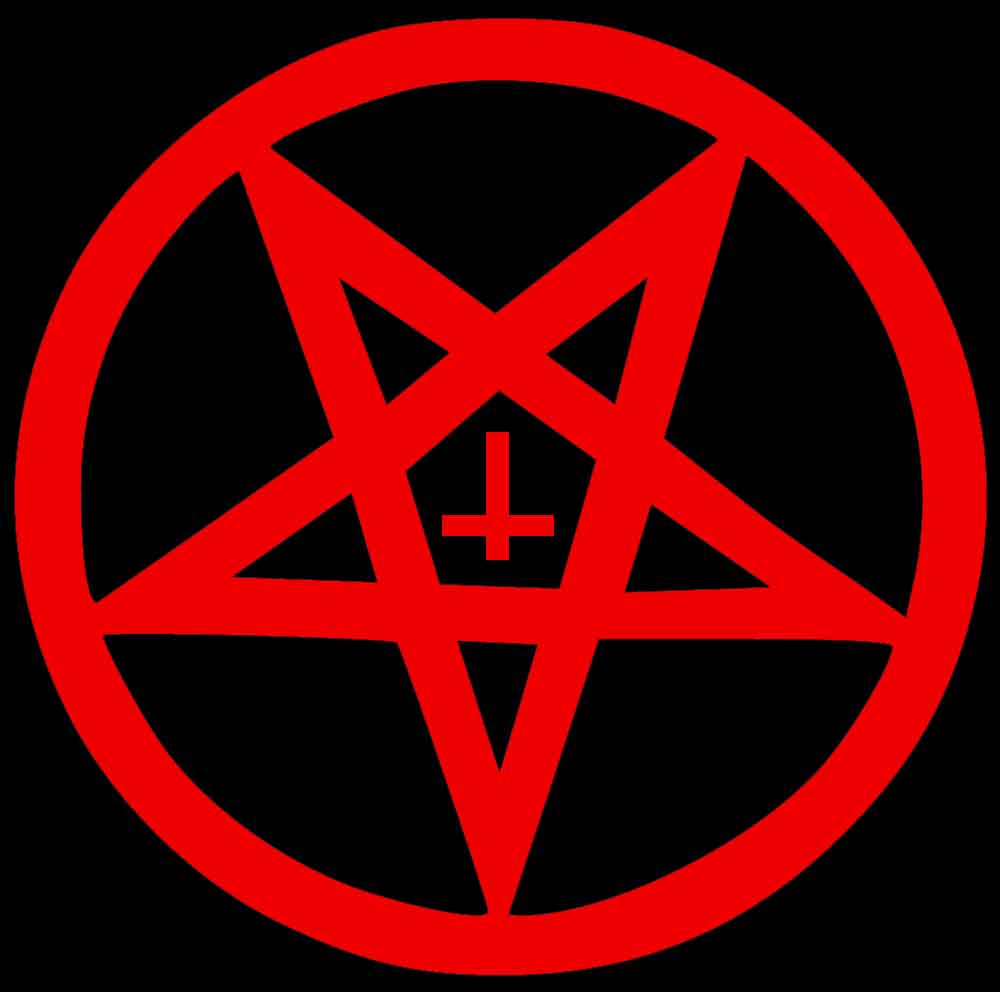Rise Up Against the Enslaver
Posted: December 19th, 2023 | Author: Brett Stevens | Filed under: Order of Nine Angles | Tags: Friedrich Nietzsche, lucifer, mythic imagination, Satan, tom wolfe, william s. burroughs | Comments Off on Rise Up Against the EnslaverEver since the Revolutions, which began after the Mongol invasions and continued through The Enlightenment™ to the French Revolution and American Civil War, Western Civilization has wasted its time babysitting sociopaths and psychopaths.
The kings, who were a strong reductionist authority, kept this problem in check through Darwinism: a social caste hierarchy promoted the intelligent and kept the dumber in meso-serfdom.
They made a fatal mistake, however, which is forgetting that waste is part of life. In any population, a certain number of waste humans are produced, and if you make life easy (or worse, give them “freedom” and even worse, subsidies), you get many waste humans.
Our societies poisoned themselves with their own waste. Instead of removing the accumulation of useless and destructive people, we became soft-hearted and kept them around, and so a slow steady trickle of deleterious mutations wore us down.
At this point, your average modern person wears glasses, has tooth decay, struggles with one or more serious health problems, has bad mental health, and cannot think through the basics of what was part of common sense two centuries ago.
It turns out that the Revolutions were fought against the wrong thing. Instead of fighting the higher, we should have fought the lower, but that is not popular because weakness lurks in every human breast and we fear that we are the lower.
The manipulations of others increase this cycle. Parents try to control their children, local governments wield carrot and stick, and jobs — which replaced having your own farm — set up approved methods and reward those who obey even when results are mediocre.
An ends-over-means society has purpose: it wants to adapt and become healthy, always improving, because stagnation is death. A means-over-ends society wants peace by limiting bad methods like conflict, and it stagnates because it tolerates the bad as well as the good.
It would be odd then if the same process had not happened to our gods. The ancient gods were strong and amoral, not limited by method in order to civilize them, but rather passionate forces of nature like the winds, rain, gravity, storms, fire, and animals.
In that order, humans fit into the chain of animals reaching up to the gods, meaning that we were smarter animals but still animals, so we had to count on the Iron Rule of nature: every thing — people, ideas, methods, groups — acts only in its own self-interest alone.
When you had kings, this worked in your favor because although tempestuous, they were of the population and only succeeded when it did, which created a disincentive to tyranny, or the holding of power and wealth for their own sake, a means-over-ends pathology.
This means that all of modern politics is manipulative gibberish and distracting lies, and the real question is found in biology. We need to adapt to our environment and then improve our lot qualitatively, aiming for what Plato called the best life.
Instead of living sane lives, we are accepting what the Crowd tells us is important, and then rationalizing what we have as the best life so that we can succeed through social influence not fall afoul of the angry Herd, a means-over-ends fiction-absolute:
Even before I left graduate school I had come to the conclusion that virtually all people live by what I think of as a “fiction-absolute.” Each individual adopts a set of values which, if truly absolute in the world — so ordained by some almighty force — would make not that individual but his group . . . the best of all possible groups, the best of all inner circles. Politicians, the rich, the celebrated, become mere types. Does this apply to “the intellectuals” also? Oh, yes. . . perfectly, all too perfectly.
The problem with egalitarian societies is that knowledge does not move downward through the hierarchy because the lower cannot comprehend it. For this reason, organized human societies tend toward stupidity and insanity, then justify it is as “moral.”
In religion, the same is true. Any intelligence and sanity about religion will be esoteric, meaning that each stage of learning unlocks the next stage, but only then. These are inaccessible to all but a few in any civilization.
The ancients represented the gods as forces of nature. The message there was that morality is something humans must derive and enforce, not part of the world. It is up to us entirely and we are the only force that will produce that result.
Even more, this outlook says that morality itself is suspicious; in the ancient view, the only value is strength, and strength tends toward benevolence to the good and indeterminate, and violence toward the weak, useless, insane, stupid, criminal, and perverse.
In other words, the ancient gods are eugenic but the modern gods — like democracy — are dysgenic.
What people forget is that while mainstream Satanism is merely edgy atheist Leftism with a touch of libertarianism to keep it controversial, the Luciferians are theological, meaning that we believe in the ancient gods.
Let us for a moment dispense with labels and look at theology as a naturalistic question.
Plato gives us a solid start point by deriving theology from cause-effect reasoning and relativity, an argument that is hard to summarize but can be glimpsed from this passage in Phaedo:
Are not all things which have opposites generated out of their opposites? I mean such things as good and evil, just and unjust-and there are innumerable other opposites which are generated out of opposites. And I want to show that this holds universally of all opposites; I mean to say, for example, that anything which becomes greater must become greater after being less.
We know hot only because there is cold; we know death only because there is life, but conversely, we know life only because there is death, and therefore the two have a causal relationship which is inalienable.
Luciferians remain aware of what H.P. Lovecraft hinted:
That is not dead which can eternal lie,
And with strange aeons even death may die.
This points to the core of the Platonic argument, which is that all that we know of the tangible world arises in fact from
If we conceptualize “hot” and “cold” as absolutes, we see them as a binary: EITHER hot OR cold. However, if there are degrees of hot and cold, like the gap between a chilly day in San Francisco and the three Kelvin heat level of outer space, then it is a spectrum, not a binary.
The binary, in other words, is an imposed human creation. We see hot and cold relative to our own position, meaning what we know of hot and cold, instead of the wider range of possibilities. Those in fact are so beyond our grasp that they seem mythological.
Plato believes that because effects tend to be simpler than the full fact pattern of causes — a ball flying through the air is simpler than the child kicking it, the grass field, the open sky, and the other players of the game — that our world is the effect of a far bigger cause.
That cause, in his view, exists somewhere in the raw material of the universe itself, which he surmises to be informational, namely information or information-like in its nature. This wider data field is where we find all the interesting stuff like sleeping Ancient Ones.
To a Platonist, then, the gods are human descriptions of forces beyond our control, on par with us developing a god of magnetism, gravity, or rainfall. The ancient world was more alive, perhaps, because its gods were not separate from nature.
History tells us that ancients used an approach called mythic imagination to make human symbols out of the forces of nature and the divine:
Think of cause/effect reasoning like a study of a detail. I know why a single bolt exists in one tiny corner of the airframe of a 747; a worker put it there. But why does it make sense that the bolt go there? For that analysis, I need to understand the design of the 747: where stresses go, how energy flows through it, and how it interacts with its physical world.
The first analysis — that a bolt exists because a worker put it there — is what we might call an effects-based analysis. The latter — a study of the design, understanding the load-bearing function of that bolt — we might call a cause-based analysis. Most human chaos seems to arise from mistaking the former for the latter, and therefore never fully understanding why that bolt needs to be where it is.
Mythic imagination occurs when individuals look at the world and instead of trying to describe it in material terms, try to personify it, or describe it as if it were composed of human-like consciousnesses. In a seemingly paradoxical twist, the only way to escape a perspective limited by our humanity is to use human-ness as a metaphor and through it, which allows us to escape needing to know the details or spend endless fruitless time trying to derive them. Instead, we spot the pattern, and by using that which we know best, make the metaphor transparent.
The point of this, perhaps, is that their gods were non-political; they did not need to believe in a literal god who pulled the sun across the sky every morning in a chariot, but saw the symbol as a way of making beauty out of the natural process they witnessed.
In the same way, many of the “spiritual but not religious” people now even question the notion of a “god” as a being instead of a force. To them, religion consists of three important parts that rely on each other:
- There is a divine force parallel to nature.
- This provides some kind of afterlife or reincarnation.
- It shapes the universe toward goodness and complexity.
If I were to design a faith, that would be all that would be enclosed, since this much we can find in our intuition and the innocence of children. This world is a good place, it tends toward goodness and beauty, and something good waits after this life.
This religion would be perennialist and recognize that modern religions are all vocabularies, or different words, symbols, images, and stories being used to describe the same spirituality: the divine exists in parallel to nature and is beyond our conception.
For this reason, the pagan faiths were metaphorical and not symbolic or literal, especially since the latter two are easily confused in dualistic systems where a pure divine or moral state exists in opposition to an impure and immoral natural state.
The pagan faiths were banished by the Abrahamic religions long ago, leading to a need to reconstruct them from traces of esoteric wisdom of the past:
The advent of Christianity virtually erased all traces of pagan and heathen thought, which were the only indigenous ‘Western’ spiritual traditions. Even though there are some immensely dedicated movements making considerable progress in reconstructing ancient pagan/heathen traditions, a lot of valuable knowledge has been irrevocably lost. In this regard, Hinduism, in particular, is useful to study because it is the closest living major religion to those of ancient Europe, and it can provide many useful historical insights into the Pre-Christian West.
Abrahamic religions unite several things into their gods: a moral control system of means-over-ends thinking, a dualistic metaphysics which rejects “might is right” and “red in tooth and claw” nature for idealistic humanism, and the idea of universal truth.
The consensual hallucination that universal and absolute facts, truths, values, and communications exist is not merely a control mechanism, but a projection of human fears: we use these universals to control each other through language.
In the Abrahamic faiths, this means a list of methods that are unacceptable, leaving only the “safe” ones which allow others to be individualistic without anyone noting that they are unrealistic or venal. It is a mentaly of keeping together the Herd.
Satan, by contrast, is a god of inequality; in his word, knowledge exists for those who seek it, and some rise above others. This comports with not just hierarchy but esotericism as well as a Darwinian eugenicist view of human adaptation to nature.
A wise man once opined that the Abrahamic religions created Satan out of the ancient gods because they feared the state before their takeover:
Our gods became your Satan and Satan became our god.
This follows from the basic formulation of Nietzsche — a paraphrase, but shorter and therefore more effective than the original text — that holds that reality is relative to both the perceiver and to reality as a whole:
There are no truths, only interpretations.
Following the mythic imagination route, this suggests that what we think of as “god” is comprised of our minds meeting an understanding of the world and therefore, by being relative to its larger cause, brings forth a manifestation of the gods in our existence.
The modern takes on ancient texts call this “faith,” but it is really a process of discipline, or shaping our minds to be ready for the forms that exist beyond this world, and like Lovecraft’s ancient beasts, awakening them from their undead life.
It seems contrary to contemporary minds, but the path to this gateway begins with nihilism or the rejection of fixed methods of truth being mistaken for the truths themselves, which are both relative and holistic:
A nihilist declines to believe in the consensual hallucination that there is an absolute, universal, and objective shared space of facts, morals, values, truths, and communications.
Nihilist spiritualists may be the only honest spiritualists because they do not believe in a god for everyone nor in truths for everyone. Instead, they see the divine force as a natural force, revealing itself to those who seek it with discipline.
In addition, they recognize — as the Calvinists do — that we are all born to different fates. Some are born to be peasants, some kings; the rest exist on a spectrum of ability, with the best of them able to see farther into the divine.
Ironically this makes Luciferians better believers than Christians, since instead of demanding that the world fit a rigid calcified order so that it can avoid conflict, we accept that God is based in conflict and tension leading to evolution, for He is a God of War:
That depends on how you see Utopia. In a sense, an ideal society would be a static society, and any such society is an evolutionary dead end. Happiness is a byproduct of function, purpose, and conflict; those who seek happiness for itself seek victory without war.
— William S Burroughs
In this cosmos, what is Lucifer? He is like God another conceptualization of a manifestation, a term we use because we must, since language requires contraction (despite the loss of meaning inherent in that process). Painful knowledge through conflict is the essence of Lucifer.
On a broader scale, we can see why the Christians divide the divine into Father, Son, and (W)Hol(l)y Ghost, since if God is life and Satan is death, the Holy Spirit is the force that keeps these two necessary relative opposites working on a spectrum of function.
The Son on the other hand is the spark of the divine in humanity, there to show us that our connection to the ancient gods requires sacrifice — including but not limited to discipline — for us to give up our connection to the material in order to see the eternal.
Like their political counterparts, the Revolutions in religion removed God from His position as a goal and a method of understanding, and turned him into a system of Control in the guise of liberation. Satan delivers us from freedom and returns us to the real and mythical.




